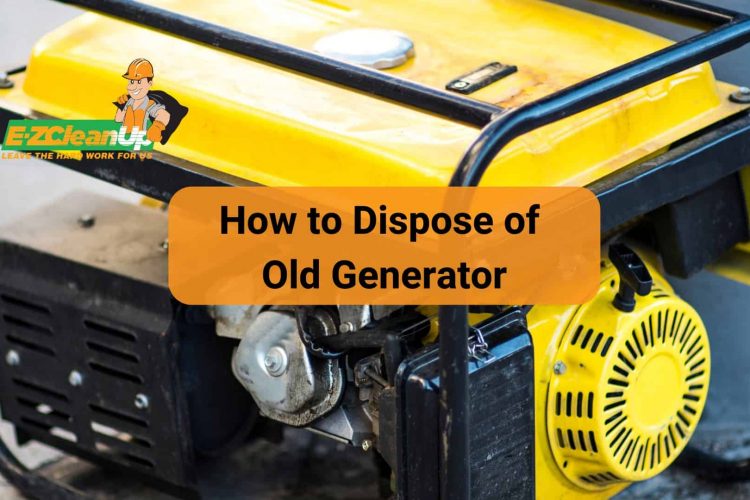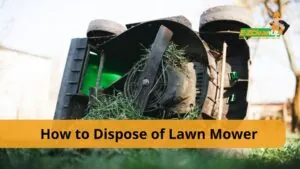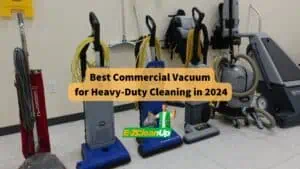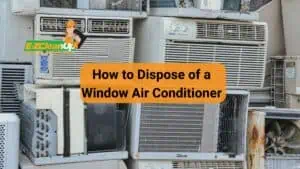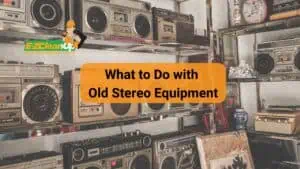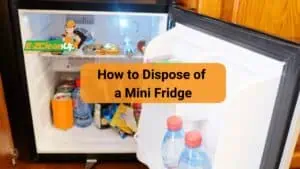Disposing of old generators involves recycling after draining fluids, selling or donating for financial gains or tax deductions, using junk removal services for safe disposal, professionally decommissioning industrial units while adhering to regulations, and checking local disposal options.
If you want to learn more about how to dispose of old generator, read our guide below.
Recycling Old Generators
Finding a recycling center that accepts generators is your first step for this option. Many centers in the United States cater to recycling various types of scrap metal, including those from generators. These often contain valuable metals like copper and aluminum.
Thoroughly drain your generator of all fuels and oils before recycling. This step is necessary to prevent any environmental harm and to comply with regulations at most recycling centers. If not properly cleaned, some centers might charge a hazardous material fee or refuse the equipment altogether.
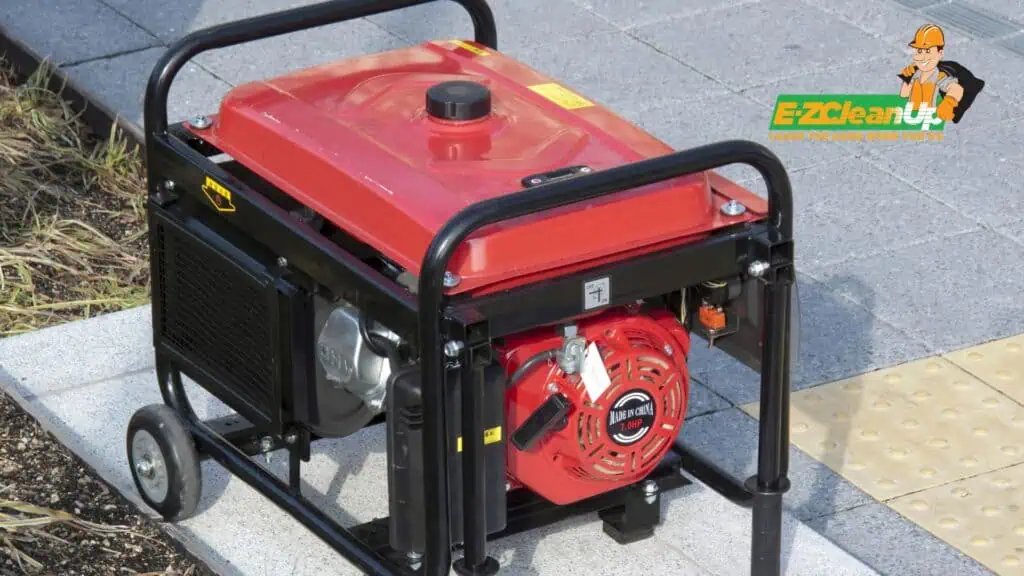
Recycling your old generator can be beneficial both economically and environmentally. Economically, recycling can provide some financial return based on the scrap value of the metals contained within the generator.
Environmentally, recycling helps conserve valuable resources and reduce the need for landfill space. Additionally, by recycling, you are helping to reduce pollution and the need to extract raw materials.
Selling or Donating Used Generators
Selling used generators is a practical option to recoup some of the initial investment. The market for used generators includes the following:
- Specialized Companies: Certan businesses purchase used commercial and industrial generators. They offer competitive prices and consider factors such as market value, size, age, and condition of the generator.
- Online Platforms: Platforms like eBay are common places to list smaller or portable generators, reaching a broader audience.
- Direct Sales: Contacting companies directly can simplify the process. These companies provide quick appraisals and cover logistics like shipping, which makes it easier to sell large, used generators.
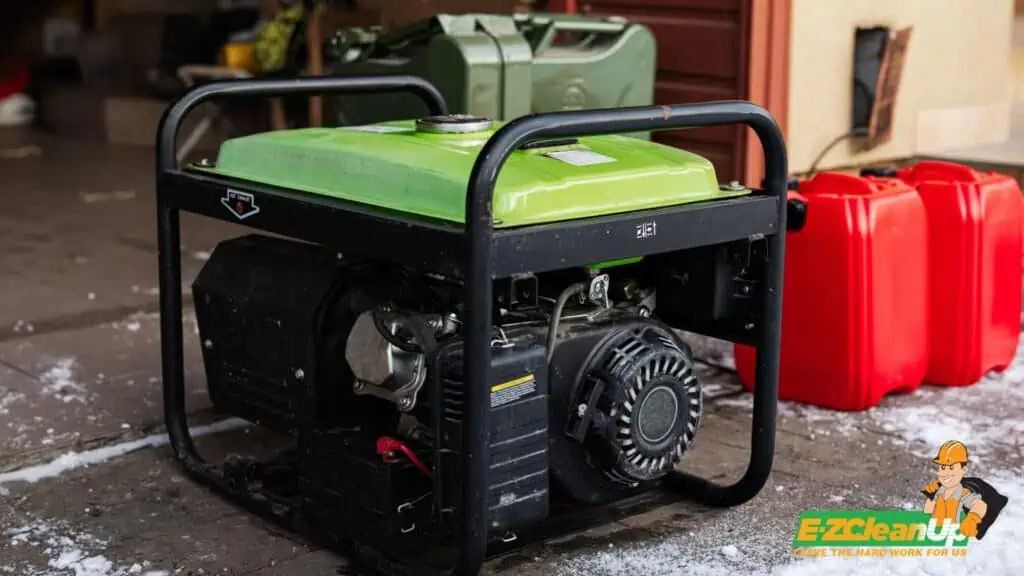
Donate to Organizations or Schools
Schools, local community centers, and small hospitals often need backup power solutions and may benefit from a donated generator. Before donating, ensure the generator is in good working condition and free of hazardous materials. It’s important to check that the recipient can maintain and operate the generator safely.
Donating can provide tax deductions. It’s advisable to consult with a tax professional to understand the potential benefits and ensure all necessary documentation is completed properly.
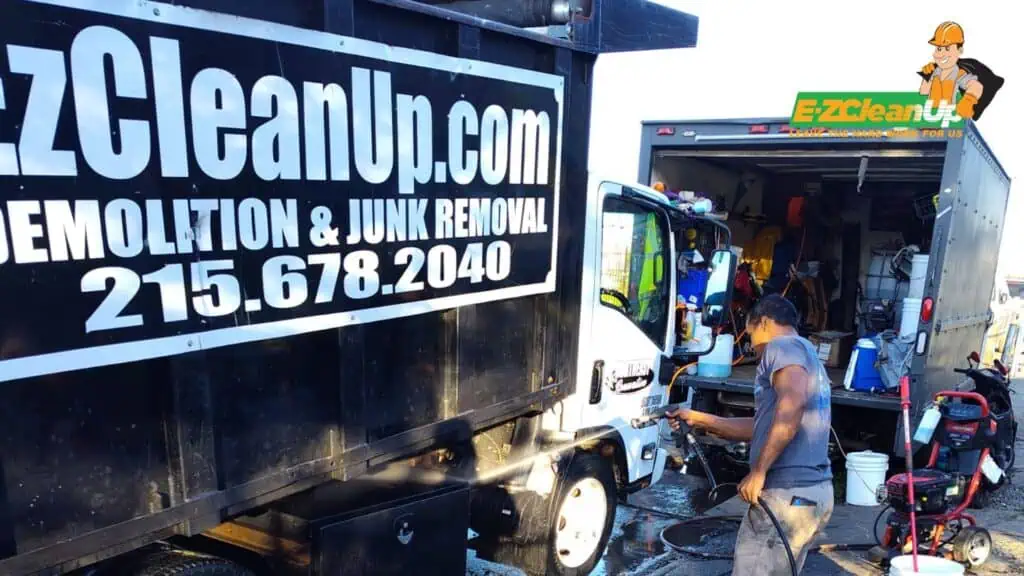
Using Junk Removal Services
Choosing a specialized service ensures that your bulky items are handled safely and efficiently. We at EZ CleanUp accept generators as long as they are free from hazardous elements, like fuel. We provide additional options like curbside and in-home pickup, which can be scheduled online for added convenience.
When it comes to costs, these can vary significantly based on the item’s size, location, and disposal method. You can check our updated pricing page to get an idea.
By using specialized junk removal services, you ensure that your bulky items are removed efficiently without risking injury or improper disposal. Additionally, these services, like what we offer at EZ, often support recycling efforts.
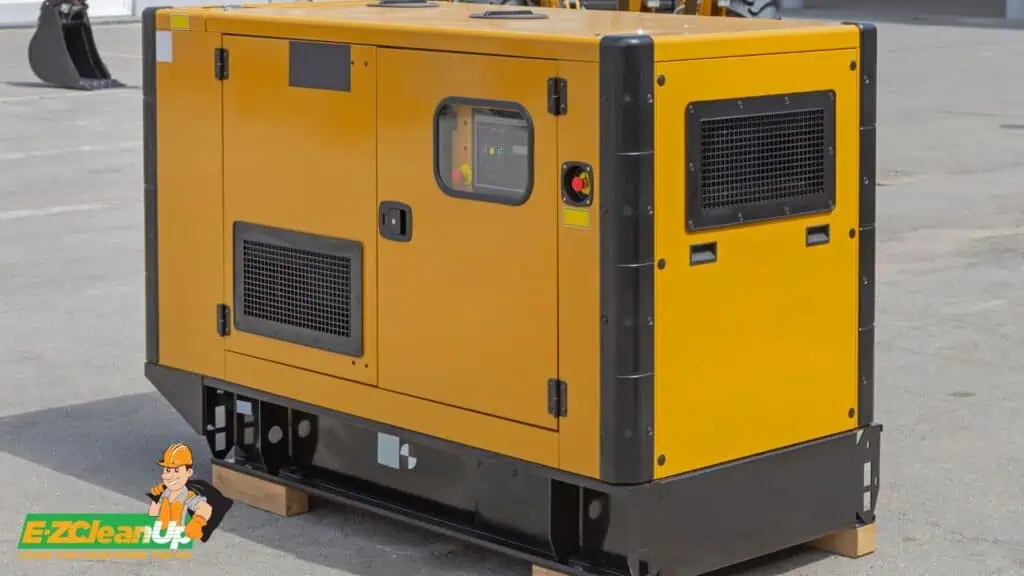
Decommissioning Large Industrial Generators
Decommissioning industrial generators is a critical process that involves several meticulous steps to ensure safety, compliance with environmental regulations, and cost-effectiveness.
Engage Professionals for Safe Decommissioning and Removal
Hiring experienced professionals to decommission large industrial generators generally begins with a thorough site inspection. This step aims to assess the generator and its integration into the current site.
Professionals handle everything from safely disconnecting the generator from its power source to the physical dismantling and removal of the unit. This is important given the complexity and the potential hazards associated with handling older or heavily used generators, including the risk of contaminating the environment with hazardous materials like fuel residues.
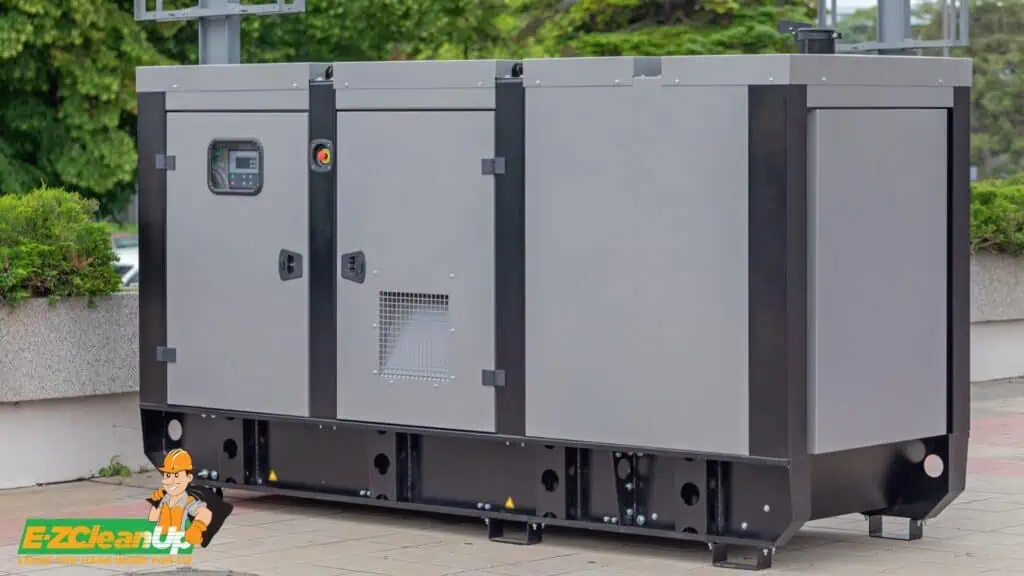
Decommissioning industrial generators must consider several key factors:
- Environmental Protection: Ensuring that the decommissioning process adheres to environmental safety standards includes proper disposal of hazardous materials. Whenever possible, recycling parts of the generator must also be done. For instance, metals and other materials can often be recycled or repurposed. This reduces the environmental footprint of the decommissioning process.
- Legal and Regulatory Compliance: The process must comply with local, state, and federal regulations. These may include specific requirements for hazardous waste handling, emissions, and noise control during the decommissioning activities.
- Health and Safety: Protecting the health and safety of workers and the surrounding community includes implementing strict safety protocols. This must be done when handling any toxic substances and ensuring that all activities are conducted under controlled conditions to minimize the risk of accidents.
Parting Out for Components
Decommissioning large industrial generators by dismantling them for valuable components like copper and aluminum is an effective way to maximize return on investment. Here’s how you can approach this process:
Dismantle the Generator to Sell Valuable Components
The process of dismantling a generator should focus on recovering valuable metals, which are in high demand. Copper and aluminum, for instance, are prized for their recycling value. There are companies that offer competitive prices for these metals.
Understanding the market prices can help you optimize the returns from selling these components. For example, copper can fetch prices around $3.35 per pound, while aluminum might be around $0.57 per pound.
Understand the Potential Higher Returns and Market for Individual Parts
When dismantling a generator, separate and evaluate components based on their material and potential resale value.
The recycling of copper and aluminum not only supports environmental sustainability but also offers significant economic benefits due to the materials’ demand in various industries.
By selling these metals to recycling businesses or directly to markets that require raw materials for manufacturing, you can potentially gain higher returns compared to selling the generator as a whole.
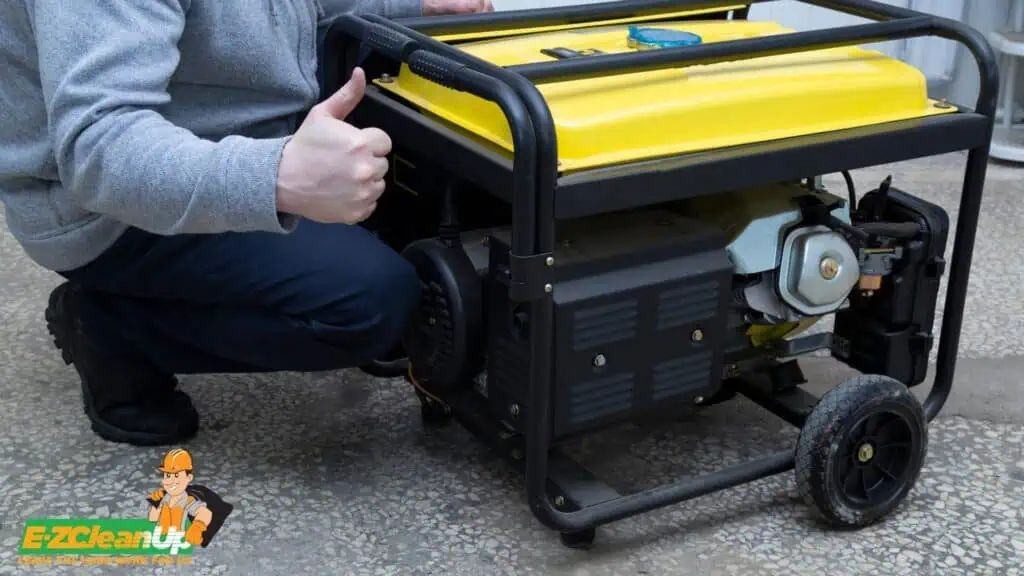
Local Municipal Disposal Options
The disposal of non-commercial generators involves understanding the available local municipal options and regulations to ensure environmental safety and compliance.
Explore Bulk Pickup Options for Non-Commercial Generators
Many municipalities offer bulk pickup services specifically for large items like generators that cannot be disposed of through regular waste services. These services are typically scheduled in advance and may require adherence to certain preparation guidelines.
These may include draining all fluids from the generators to prevent contamination. Checking with local waste management authorities or municipal websites can provide specific details on how to arrange for these pickups.
Check Local Regulations and Requirements for Disposing of Generators
Local regulations for disposing of generators can vary significantly depending on the region. It’s essential to understand these regulations to ensure compliance and avoid potential fines.
For instance, some areas may have specific guidelines about removing hazardous components like batteries and ensuring that the generator is free from oils and fuels. Municipalities may also have different stipulations for recycling components of the generator, such as metals and electronics, which must be disposed of separately from general waste.
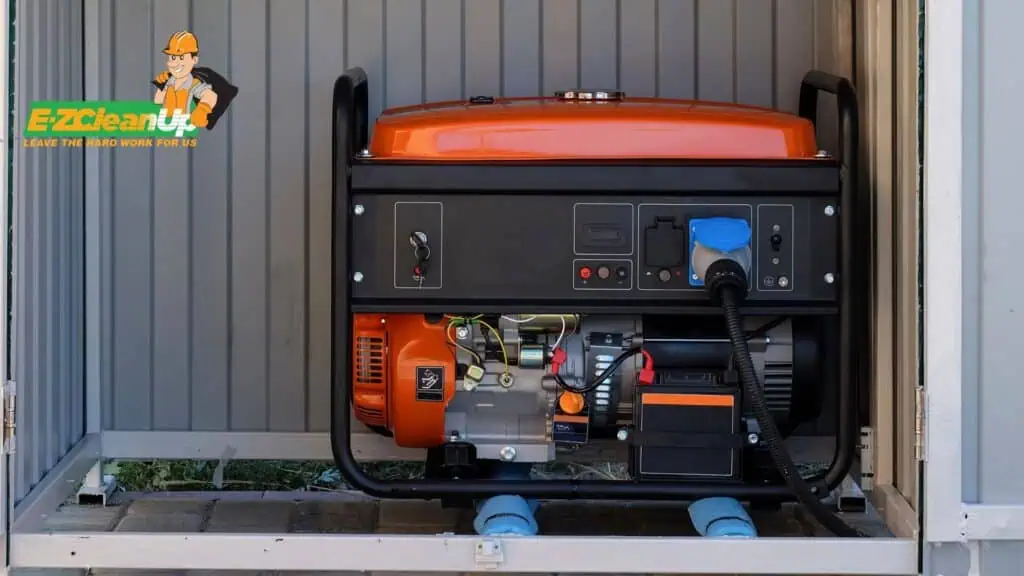
Unplug and Unload with EZ
Handling the disposal of an old generator can be a daunting task, particularly when it comes to ensuring everything is done legally and safely. At EZ CleanUp, we provide professional junk removal services that include the responsible disposal of old generators.
Our team is licensed and insured, and we guarantee a professional service. Reach out and let us help you with your generator disposal needs efficiently and responsibly.

